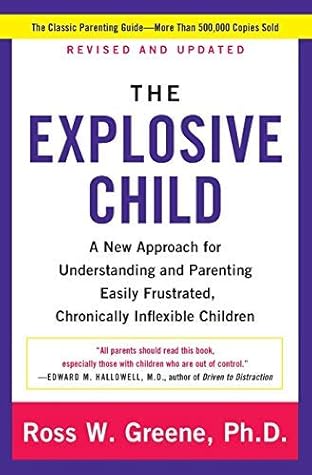More on this book
Community
Kindle Notes & Highlights
Read between
April 11 - April 12, 2023
In my experience, kids with concerning behaviors have had more pain added to their lives than most people experience in a lifetime. If pain were going to work, it would have worked a long time ago.
The mere fact that you’re talking to your child about the problems that are causing her behavior makes it quite clear that things need to be different.
In some kids, medication is an indispensable component of treatment.
Medical treatment is not something to fear, but it needs to be implemented competently and compassionately and monitored continuously.
Communicating the cause of her feelings will give you a faster track to resolving the problem.
“When it’s your kid, you keep going.”
“I think that’s because I’ve been so caught up in who she isn’t that I’ve been blowing right past who she is. I’ve let that get in the way of the most important parts of being her mother. And I don’t want it to be that way anymore.”
Fair does not mean equal. As parents, we’re going to do everything possible to make sure that each child gets what they need, which will be different for each child. Some kids need more than others.
Often this is better accomplished by doing the Empathy step in separate discussions with both siblings prior to bringing them together to discuss potential solutions.
Speculation is a no-win proposition.
Sarcastic remarks are often totally lost on kids who are black-and-white thinkers, because they don’t have the skills to figure out that the parent means the exact opposite of what they actually said.
These are not a great way to engage a kid in solving problems collaboratively (“What’s the matter with you?! Why can’t you be more like your sister?”).
Don’t forget, the child is probably having trouble sorting through his thoughts in the first place. Your interruptions don’t help.
“How many times do I have to tell you . . .” Well, you’ve probably told them more than enough times, so it’s better to switch gears and try to figure out and resolve whatever is getting in the way of your kid doing what you’ve been telling them to do.
Perhaps your child’s concerning behaviors are evoking strong emotions in you because those behaviors are reminiscent of traumatic experiences you’ve endured previously.
Solved problems aren’t energy-drainers, only unsolved problems are.
“All I know is I’ve done my best. I mean, that kid is my life. I just don’t know what to do.”
“Well, who the hell else is there to blame?” Sandra asked. “The school blames me, the therapists blame me, his case worker blames me. I’m elected.”
We concluded that the sheer force of your will—which may have served you well in other aspects of your life—is not going to be a central ingredient in solving problems with your child.
“I know it sounds corny, but I’m just concentrating on doing what I can to make tomorrow slightly better than today for me and my kid. That’s what I’ve always done. I don’t know what’s around the bend. But I’m starting to feel like I know how I’ll handle it—whatever it is—when I get there.”
Kids do well if they can. So do parents. And if things aren’t going well for you and your child . . . now you know what to do.


